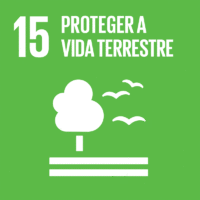Ciência_Iscte
Publicações
Descrição Detalhada da Publicação
Explaining spatial variations in climate hazard impacts in Western Mongolia
Título Revista
Landscape Ecology
Ano (publicação definitiva)
2015
Língua
Inglês
País
Países Baixos (Holanda)
Mais Informação
Web of Science®
Scopus
Google Scholar
Esta publicação não está indexada no Google Scholar
Abstract/Resumo
The winter of 2009/2010 induced a mass loss of livestock known as dzud in Mongolia. We examine spatial heterogeneity in this livestock loss in a western Mongolian province using a semi-structured questionnaire, key informant interviews, meteorological station data, and two datasets derived from satellite imagery. We identify marked local variability in the impact of winter 2009/2010 demonstrated by a striking difference in livestock mortality between three Altai mountain districts and three Gobi desert districts. We explain this pattern with reference to site-specific circumstances. We ascertain a counter-intuitive pattern of milder winters with less snow in Mountain districts when compared to Desert districts, a contrast that was particularly acute in the winter of 2009/2010 which was uncommonly long and hard, with particularly deep and widespread snow cover in the Desert, but unusually mild in the Mountains. Examination of possible drivers of dzud vulnerability at the household and community levels—wealth and herder experience—found virtually no influence on livestock losses, although a large majority of herder households were characterised by a general lack of alternative income opportunities. The severity of conditions undermined many Desert herders’ coping and adaptive strategies, including communal pooling, although those who managed to move their herds in response to the 2009/2010 dzud suffered markedly smaller livestock losses. Limited government capacity, partly influenced by remoteness, further increased vulnerability in the Desert districts where the deep snow restricted access to dzud relief assistance. Implications for hazard management and governance are discussed, as are recent policy initiatives.
Agradecimentos/Acknowledgements
--
Palavras-chave
Climate hazards,Mongolia,Dzud,Drought,Pastoralism,Drylands
Classificação Fields of Science and Technology
- Ciências da Terra e do Ambiente - Ciências Naturais
- Ciências Biológicas - Ciências Naturais
- Geografia Económica e Social - Ciências Sociais
Contribuições para os Objetivos do Desenvolvimento Sustentável das Nações Unidas
Com o objetivo de aumentar a investigação direcionada para o cumprimento dos Objetivos do Desenvolvimento Sustentável para 2030 das Nações Unidas, é disponibilizada no Ciência_Iscte a possibilidade de associação, quando aplicável, dos artigos científicos aos Objetivos do Desenvolvimento Sustentável. Estes são os Objetivos do Desenvolvimento Sustentável identificados pelo(s) autor(es) para esta publicação. Para uma informação detalhada dos Objetivos do Desenvolvimento Sustentável, clique aqui.

 English
English


